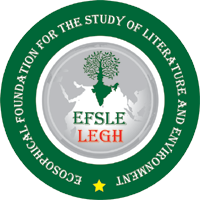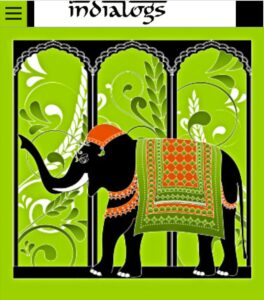Indialogs: Spanish Journal of India Studies
Vol. 13, No. 2 (October 2026)
The University of Barcelona, Spain
[The Universitat Autònoma de Barcelona (UAB)]
eISSN: 2339-8523
Guest Editor: Rishikesh Kumar Singh, PhD
Call for Contributions:
Indian Folklore and Indigeneity: The Eco-Narrative Approach
The postcolonial era witnessed a drastic change in the selection of the texts prescribed for the academic curriculum in India. However these narratives are, in fact, not exactly what they pretend to be. These narratives portray the characters of two distinctive kinds, either they are of the descendants of the enslaved and imprisoned workers and the indentured laborers, the annihilated identities and eradicated memories of the submissive women and the vulnerable children or they are of the authorities and the suppressors or the colonizers. These characters are far away from the tranquility, serenity, harmony and solace sought in nature as the Romantics represent it through their lyrical poems. Even they don’t alleviate approaching nature what the Indian literary doyen Kālidāsa persuasively articulates in Meghadūta, Tolkāppiyar in Tolkāppiyam or the American transcendentalists Emerson in Nature and Thoreau in Walden.
The true bonhomie between humans and nature is adhered to the oral culture and can be procured with the Eco-narrative approaches. The colonizers acquired only a superficial knowledge of all the customs and techniques from the indigenous people as they couldn’t reach the root which grappled the stories, songs, rituals, ceremonies and sacramental and spiritual practices tautly.
As the global North dominated the world for quite a long period of time, now it’s ineluctable that the ‘Epistemologies of the South’ must be gathered, transcribed and analyzed conscientiously. The wisdom and knowledge, what the global South possesses, was profoundly marginalized during the western dominance and also they failed to recognize their own way of life and existence- victims of the ‘Cognitive Injustice’ as Boaventura de Sousa Santos defines it.
The study of Indian folklore and indigeneity is not the reflection of any environmental imaginations. The Indian tradition compels us to ponder the existence of humans with/within nature and eventually it establishes a radical difference in the orientation of the worldview.
This special issue will put forward fresh perspectives on Indian folklore and indigeneity by engaging with the Eco-narrative tradition as a dynamic approach involving various analytical tools, esp. the epistemological one. It will contribute to the growing discourse of Econarratology or Eco-Narratives by emphasizing the Indian Folk tradition and the Indigenous culture as an epistemic and aesthetic expansion to ensure an ecosophical future abounding with a number of organic stories.
The following list of possible topics are suggestions as we are open to other ways of understanding the phenomenon of Econarratology and the Indian Folklore and Indigeneity:
- The Untold Stories: Indigeneity within the Indian Eco-narratological Tradition
- The Indian Folk Arts, Folktales, Folklores and Myths: Reconceiving the Sequestered Landscape with Panoramic Vistas
- Gender, Indigeneity and Environmental Crisis
- The Ethnocultural Orality of Dissonance and Concurrence
- Indigeneity, Globalization, Colonialism, Capitalism, Academic Discourses: A Critique of Geo/Eco-politics
- Indigenous Epistemologies and the Global South, esp. the Indian Subcontinent
- Indigenous Sovereignty and the building Communities, esp. Indigenous Women
- Ethnocultural, Sociohistorical and Contemporary Perspectives of Indian Indigeneity in the wake of Globalisation
- Indigenous Ecolinguistic Identities and decolonizing their linguistic sovereignty
- Eco-Narrativizing the Indian Oral Tradition
- Ecotheological Narratives in Indian Folkloric Performances
- Degendering the Indian Folklores and their Socio-psychological Perception.
- Endangered Folk Literatures and the abating Oral tradition within the Indigenous Communities of India
References:
- Kale, M. R. (1934). The Meghadūta of Kālidāsa, Bombay: D. V. & B. D. Mulgaokar, Proprietors, Gopal Narayen & Co. Book-sellers.
- Tolkāppiyar (n.d./2000). Tolkāppiyam (V. Murugan, Trans.). Chennai: Institute of Asian Studies.
- Emerson, R. W. (1849). Nature, Boston & Cambridge: James Munroe and Company.
- Thoreau H. D. (1854). Walden; or, Life in the Woods, Boston: Ticknor and Fields.
- Santos, B. de S. (2014). Epistemologies of the South: Justice Against Epistemicide (1st ed.). New York: Routledge.
Deadline for submissions: May 31, 2026
Submissions should be uploaded to the platform in Word. Authors are kindly requested to consult the guidelines https://revistes.uab.cat/indialogs/about/submissions
Queries about content should be addressed to the Guest Editor: rishisengar2001@gmail.com
Any other doubts can be sent to the general editors: revista.indialogs@uab.cat

